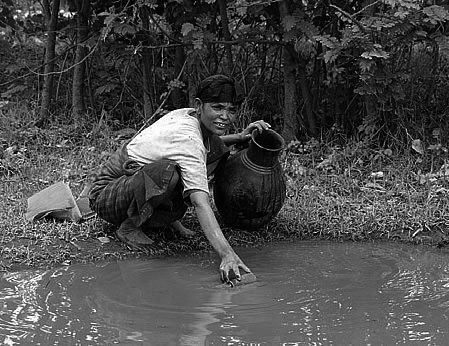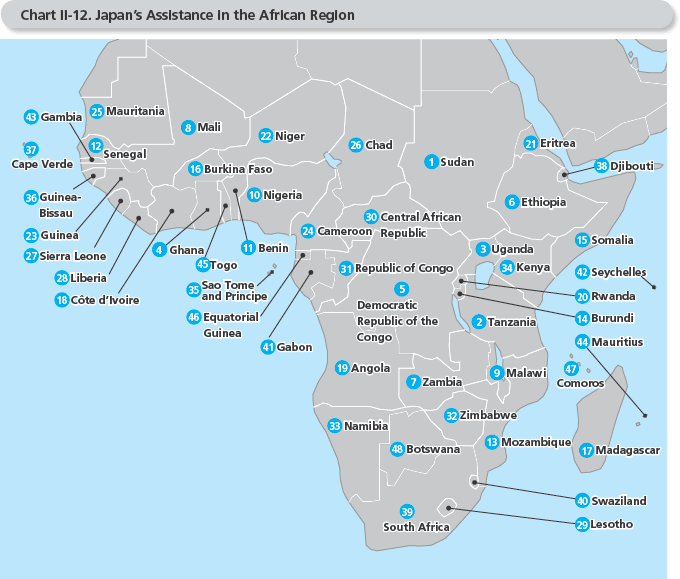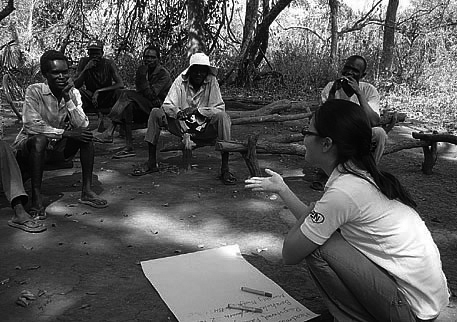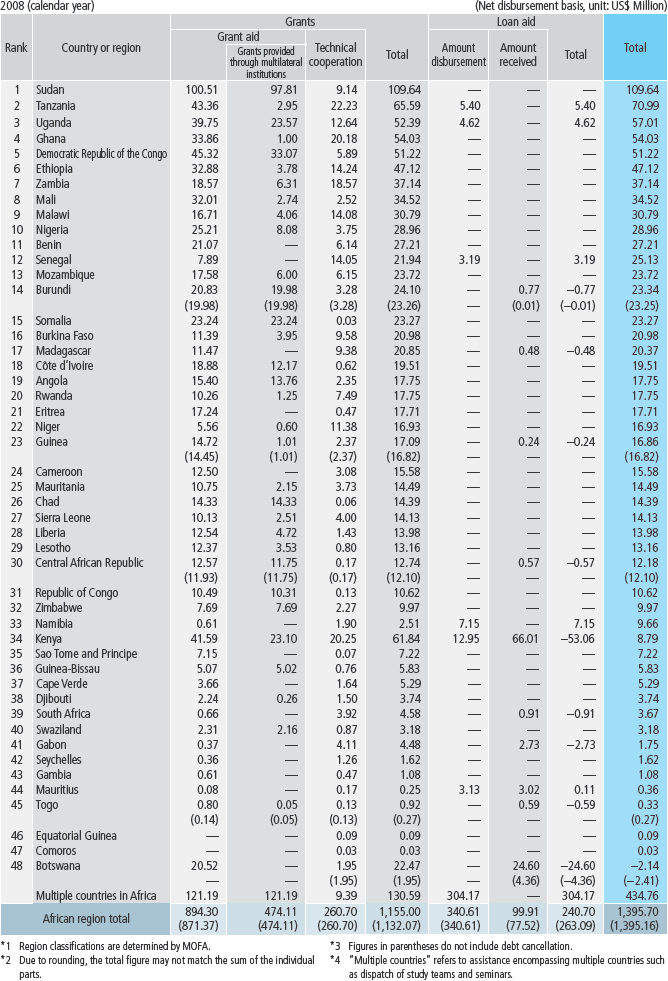Japan's Official Development Assistance White Paper 2009
4. Africa (Sub-Sahara)
•Approximately US$1,398.7 million (approximately US$1,495.61 million)
•Approximately 20.1% of total bilateral aid (approximately 10%)
Africa, in particular the Sub-Saharan African region located in the south of the Sahara Desert, continues to face serious poverty problems. The majority (33 of the 48 countries) of countries in this region are considered least developed countries (LDC), where nearly half of the population lives below the poverty line (US$1 per day).(Note 42) In addition, many countries in the region cradle serious problems that hinder development, including civil war and conflicts, refugees, famine resulting from drought, and epidemics of infectious diseases such as HIV/AIDS, requiring a significant amount of aid from the international community. Even when looking at discussion taking place in venues such as the United Nations Security Council and G8 Summits, it is apparent that these types of problems in Africa are of critical interest to international society.
At the same time, Africa boasts copious natural resources and a beautiful natural environment, and thereby possesses great potential for economic growth through trade and investments as well as the promotion of tourism. Japan must continue to make appropriate contributions as a responsible member of the international community in order to assist Africa in achieving sustainable economic growth and reduce poverty.
Notes:
(42) Approximately 51% of the entire population of Sub-Saharan Africa lives on less than US$1.25 per day.
<Japan's Efforts>
Japan has proactively cooperated in undertakings led by African countries to address development issues through the Tokyo International Conference on African Development (TICAD), which bases itself on the fundamental principle of self-help efforts (ownership) conducted by African countries and cooperation by the international community (partnership). In May 2008, marking 15 years since TICAD was launched in 1993, the Fourth Tokyo International Conference on African Development (TICAD IV) was held in Yokohama. In addition, in March 2009, a ministerial-level meeting was held in Botswana to confirm how TICAD IV assistance measures were implemented. Japan also presented a strong message on African assistance at the G20 London Summit held in April 2009. For the sustainable development of Africa, the advancement of public companies and resource development are also important. Japan implements researches to support those movements.
•See Part I, Chapter 1, Section 2 for more information on assistance to Africa.
Dispatch of the Water Security Action Team (W-SAT)
Japan announced the dispatch of the W-SAT at TICAD IV in 2008. The W-SAT is a framework where technical experts and other personnel from Japan are dispatched to African countries that cannot receive a stable supply of safe water to provide technical guidance. A wide range of currently active and retired technical experts in water-related fields such as water distribution management, groundwater drilling, pumping technology, water and sewage, and vegetable cultivation are recruited from domestic waterworks bureaus, NGOs, and private enterprises, and then dispatched as Japan Overseas Cooperation Volunteers or Senior Volunteers. In the past, these volunteers have been dispatched to Ethiopia, Senegal, Tanzania, and South Africa. Over a five-year period ending in 2013, Japan plans to dispatch technical experts from various sectors to an even larger number of African countries to cooperate with local people in delivering safe water to people.

Residents drawing unsanitary water that is unsuitable for drinking because access to safe water is limited (Photo: JICA)


Project for the improvement of water sanitation at schools in Sudan (Photo: JEN)

